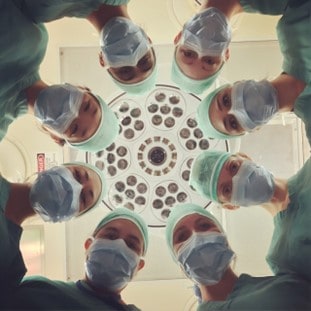A Better Way for Aspiring Physicians to Get “Matched”
Aspiring physicians embark on a journey filled with rigorous training, countless exams, and the nerve-wracking process of attempting to secure a residency position through the traditional position-matching channels. However, there exists an alternative path that new doctors can explore to kickstart their medical careers: Open Residency Positions and Fellowships.
Utilizing Unfulfilled Positions to Your Advantage
After the conclusion of the Match, many positions remain unfilled for various reasons. These vacancies present an opportunity for medical graduates who were unsuccessful in securing a spot through the traditional Match process or for those who decided to pursue medicine later in their careers. While the number of available positions may vary from year to year and across different specialties, they offer a lifeline to aspiring physicians keen on starting their residency training.
Advantages
Flexibility: Unlike the Match, where candidates are bound by a strict timeline and limited options, pursuing a vacant residency slot allows for greater flexibility in application deadlines and program availability. This flexibility can be advantageous for candidates who need more time to explore their options or improve their credentials.
Increased Chances of Acceptance: With fewer applicants vying for Non-Match residency positions compared to other highly competitive positions, aspiring physicians may have a higher chance of securing a residency spot. This can be particularly beneficial for candidates with unique backgrounds or those who may not have matched successfully in previous attempts.
Opportunity for Career Change: Residency openings provide an avenue for individuals who have pursued careers outside of medicine but have now decided to transition into healthcare. These candidates bring diverse experiences and perspectives to the medical field, enriching residency programs and patient care.
Placement Opportunities
Navigating the landscape of medical residency requires a strategic approach. Here are some steps aspiring physicians can take to maximize their chances of securing a position:
Research Programs: Begin by researching programs that offer open positions in your desired specialty. Utilize online resources to gather information about program requirements, curriculum, and faculty.
Network: Connect with mentors, faculty members, and alumni who can provide guidance and support in your residency search. Attend medical conferences, workshops, and networking events to expand your professional network and learn about potential opportunities.
Customize Your Application: Tailor your application materials, including your curriculum vitae (CV), personal statement, and letters of recommendation, to highlight your strengths and suitability for the program. Emphasize any relevant clinical experiences, research projects, or extracurricular activities that demonstrate your commitment to the specialty.
Prepare for Interviews: If selected for an interview, thoroughly prepare by familiarizing yourself with the program’s mission, values, and objectives. Practice answering common interview questions and be prepared to articulate your career goals and aspirations.
Exploring Fellowship Opportunities
In addition to unfilled positions, doctors can also consider pursuing fellowships as a pathway to further specialization and career advancement. Fellowships provide focused training in a specific subspecialty or area of interest, allowing physicians to develop expertise and pursue academic or clinical research.
Advantages of Fellowships
Specialized Training: Fellowships offer specialized training beyond the scope of residency, allowing physicians to gain expertise in a particular subspecialty or niche area of medicine. This advanced training can enhance career opportunities and open doors to leadership roles in academic institutions, research organizations, or healthcare facilities.
Mentorship and Networking: Fellowships provide opportunities for mentorship and networking with leading experts in the field. Collaborating with renowned faculty members and engaging in research projects can accelerate professional growth and establish valuable connections within the medical community.
Career Development: Whether aspiring to become a clinician-researcher, educator, or healthcare administrator, fellowships provide a platform for career development and advancement. Physicians can leverage their fellowship training to pursue academic positions, leadership roles in healthcare organizations, or entrepreneurial ventures.
Conclusion
In conclusion, aspiring physicians have alternative pathways to residency and career advancement beyond the traditional Match process; there are unique opportunities for flexibility, specialization, and career development. By strategically leveraging fellowship opportunities, aspiring physicians can embark on fulfilling careers in medicine and make meaningful contributions to patient care and medical research.


